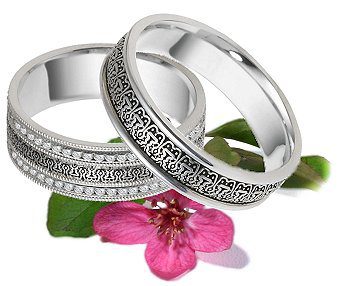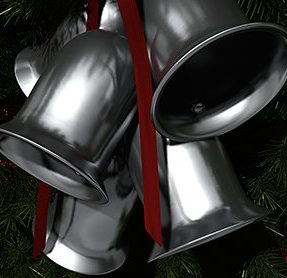 For a long while I was afraid to write things such as “I am mentally ill” or “I am bipolar.” I was afraid of labels.
For a long while I was afraid to write things such as “I am mentally ill” or “I am bipolar.” I was afraid of labels.
By calling myself a manic-depressive would I trap my psyche in “sick” mode? By accepting my diagnosis of bipolar disorder, would I prevent healing? By writing the words “I am mentally ill,” was I holding myself to a place that I was, but not where I am now, or where I could go?
I spent a fair amount of time pondering this (I’m a natural ruminator)–I thought about attracting bad karma by writing about my illness, about feeding my anxiety by connecting with others who also struggle with depression, about stifling my spirit by posing all of my questions and frustrations online in an effort to figure out and assemble this humongous, Anchisaurus (a kind of dinosaur) 500-plus piece puzzle of mental illness.
And then I arrived at this guess (because there are no answers): no.
I looked to my mental health heroes–Abraham Lincoln, Winston Churchill, Art Buchwald, William Styron, and Kay Redfield Jamison–and realized that they slapped on their labels with pride so to educate and inform an ignorant world about mental illness. Because of these label-wearers, millions of people suffering from depression and other mood disorders have been properly diagnosed and treated.
I thought back to the first days of my sobriety, when abstaining from booze was like running a daily marathon. (I quit drinking right as I left for college . . . the worst possible time in a person’s life to jump on the wagon.) For three years I attended three or more meetings a week, in which I would say something like, “Hi, I’m Therese and I don’t like what happens to me when I drink alcohol,” because I just couldn’t utter the word “alcoholic” two words after the word “I.”
I stumbled and stalled at step one–accepting that I was powerless over alcohol–unable to progress to step two (came to believe in a power greater than ourselves–which I was cool with.) And I obsessed for three years, as my classmates got drunk at the Linebacker bar, about whether or not I was, in fact, an alcoholic.
Toward the end of my junior year, I attended a meeting devoted to the first step.
“Without the first step, you may as well give up the program,” said one guy.
“It’s the foundation,” said another.
I’m doomed, I thought, so I guess I should get drunk.
I drove my Ford Taurus up to the Indiana-Michigan state line from South Bend. (It was a Sunday night and Indiana was dry on the Lord’s day.) I bought a six-pack of Coors, drove back to Saint Mary’s College, parked the car in the student lot, and downed the cans. Then I waited to see what would happen–if puss would start dripping from my nose, if my fingernails would start to curl–some tangible sign that I was, in fact, allergic to these types of beverages.
The next day I confessed to my therapist what I had done, and how I wanted to end my life I was so disgusted with myself. How could I have done something so stupid? Ruin three years of sobriety? And so close to my three-year chip?
“But I can’t do that bloody first step!” I said. “And if I can’t do the first step, I can’t move forward.”
“Therese,” she said very calmly, “you just told me that you are ready to end your life because you are so obsessed with this question and your struggle with alcohol. I’d say, then, that you are powerless over it. If you can’t say that you are powerless over alcohol itself, then say you are powerless over your obsession with alcohol.”
Oh. Now that made sense. Because there were times when I drank that I could stop after two. I didn’t always pass out in a friend’s coat closet or wake up between two trashcans on a neighbor’s lawn. But the obsession about alcohol–well, yeah, that drove me absolutely crazy.
The week of my Michigan road trip was hellish. Friends, hearing that liquor and I were a pair again, invited me to parties that I wanted to attend in the worse way. After all, I deserved to taste the college experience after living three years as a cloistered monk. With one foot in the Linebacker and the other in the monastery, I was more confused than ever. And the puzzlement was poison to my mind and soul, my body and spirit.
Finally I walked to the gazebo in back of Our Lady of Loretto Church, the place where Eric asked me to marry him three years later. I looked over the St. Joseph’s river like I did so many times after my runs around the campus of Notre Dame.
“God,” I pleaded. “I can’t hold onto this anymore. I can’t say for sure whether or not I’m an alcoholic, but I want peace more than anything. And it appears that when I drink bad things are more likely to happen to me. Is that enough to make the first step? I want so badly to please you (remember, I’m codependent) and to do what is right, but I can’t take these obsessions anymore. So if you take this urge from me–all of my preoccupation with booze–then I will do my best to stay sober and do your will. In other words, God, I give this to you. Please take it.”
I lifted my arms above me, and looked at the current in the river. And I felt peace. So much peace. A peace about this whole alcoholism issue that I hadn’t felt since before I tasted my first wine cooler at age 15–when I accidentally found the quiet car on the noisy Amtrak train of my mind.
“Like a diagnosis, a label is an attempt to assert control and manage uncertainty,” writes Rachel Naomi Remen, M.D, one of the first pioneers in the mind, body, health field. “It may allow us the security and comfort of a mental closure and encourage us not to think about things again. But life never comes to a closure, life is process, even mystery. Life is known only by those who have found a way to be comfortable with change and the unknown.”
I disagree. My labels have freed me to live in better harmony with the person I wish to be.
Image courtesy of Avery.com.

